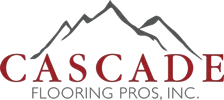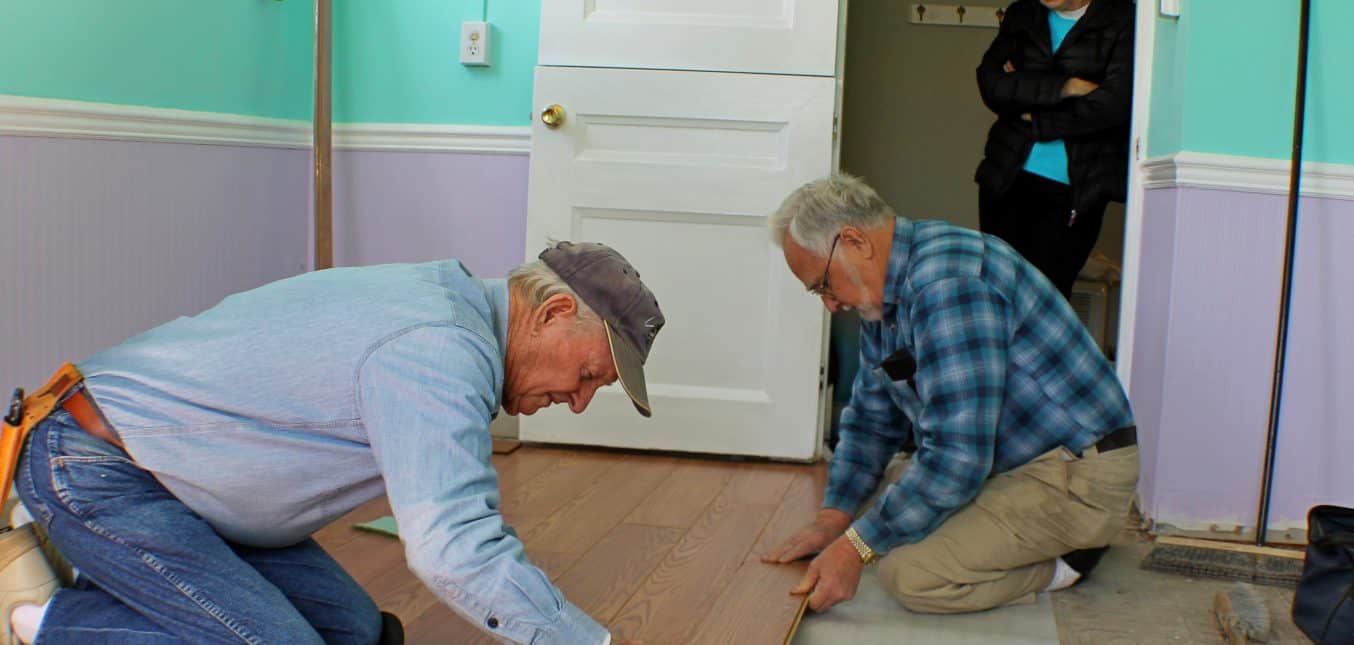As the weather gets warmer homeowners often find ourselves looking toward remodeling or updating their home. Home improvement shows and blogs encourage saving money by doing the work yourself, but with the work comes aggravation and spending time working on the home instead of enjoying the warmer months with family. Let Cascade Flooring Pros do the work for you. We can work with you on more inexpensive flooring options. Here are the pros and cons of the most popular options for low-cost flooring..
Carpet Tiles
Carpet tiles are exactly what the name suggests. It is carpet in tile form instead of a broadloom roll. Easy to install, the tiles usually come with the padding attached and can be installed by peeling off the backing and sticking it to the floor.
Pros
- Carpet tiles are easy to install and therefore you will not spend a ton in labor.
- You can get creative by using different colors and patterns or moving the tiles in different directions.
- If a tile gets damaged, it is easy to replace. That grape juice stain that no one claimed responsibility for can be easily fixed with a new tile.
- Carpet tiles waste less carpet because of the different sizes available, unlike broadloom where you have to cut more to fit an area.
Cons
- The edges of the carpet can become frayed.
- The seams of the carpet can show making things look uneven.
- Carpet tiles are not as soft as broadloom.
- Although installation is cheaper, the tiles usually cost more than traditional carpet.
Cork
Cork may seem like an unusual choice, but it has been used for flooring in the United States for over 100 years. It is made from the bark of the cork oak tree and comes in a variety of colors.
Pros
- Cork is environmentally-friendly. The extraction of cork does not harm trees as the cork will grow back every few years. It is biodegradable as well.
- It is soft and cushions your feet. Cork is great for areas where you stand for long periods of time. In addition cork can cushion falls better than other flooring options.
- is a great noise barrier; so when your kids want to practice the trumpet in the bedroom upstairs, you can have some relief from the noise while downstairs.
- Save money on your heating and cooling bills with cork. The same properties that allow cork to absorb sound also keeps the heat in the room in the winter and the cold air in the summer.
- For those with allergies, cork is a great option. It is mold and mildew resistant.
Cons
- Cork does not handle spills well. It can warp or curl when exposed to high humidity or standing water.
- Sunlight can fade cork.
- It is on the higher side of inexpensive flooring options. Although if properly taken care of, it is more durable than other options.
- Sharp objects can damage the cork flooring.
Engineered Wood
Engineered wood looks very much like hardwood, but comes at a reduced cost. It is made up of layers with the top and bottom layers being natural wood that sandwich several layers of plywood.
Pros
- Because of the way it is engineered, this flooring option was designed to withstand high heat and moisture. This makes it a great option for our high humidity area.
- The more layers of plywood, the more durability. They can withstand high traffic areas and are difficult to scratch.
- Although cheaper than solid wood floors, engineered wood can add value to your home.
Cons
- The core layers need to be made from quality wood or they will warp or fade. We at Cascade Flooring Pros will make sure the engineered hardwood we use will be of the best quality.
- Although much more inexpensive than solid hardwood, it is more expensive than laminate or carpet.
Laminate
Laminate flooring is a flooring made of pressed wood. Four layers of materials are fused together to simulate the look of wood.
Pros
- Laminate is one of the most inexpensive flooring options.
- Can handle heavy traffic areas.
- Does not stain, dent, or scratch as easily as hardwood, making it a great option for those with messy kids or pets.
- It is easy to clean without the need for wax.
- Looks like hardwood.
Cons
- Does not improve the resale value of your home.
- Whereas it can handle water better than hardwood, it can still warp or stain from standing water.
- Cannot be refinished and will have to be replaced eventually.
- Not as quiet as hardwood and can be hard on the feet.
Vinyl
Vinyl flooring is a durable, plastic flooring that has come a long way when it comes to quality.
Pros
- Vinyl is very durable. It is inexpensive and easy to maintain.
- There are many options for colors and patterns.
- Vinyl is moisture-resistant. That is why you see if often in high traffic areas like kitchens and bathrooms.
- It is comfortable, doesn’t get too hot or cold, and with padding underneath can be easier on your feet.
Cons
- Vinyl is easily damaged by sharp objects.
- Direct sunlight can cause color to fade.
- It is manufactured using polyvinyl chloride (PVC) and can release volatile organic compounds (VOC), however, many manufacturers are using less PVC.
- It can be hard to remove.
- Vinyl is non-biodegradable and non-renewable materials may be used to make it.

